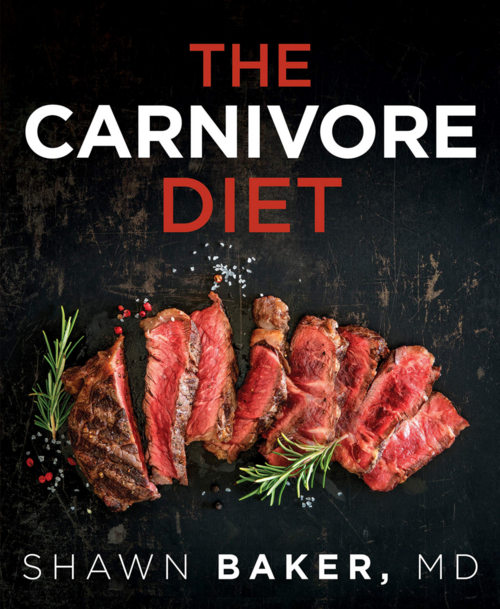Dietary rules are based mostly on lies.
Hey People! 👋
The title is a little bait, but it's founded on something I read in the "Carnivore Diet" by Shawn Baker. 🍖
Beside the obvious push for eating mostly animal based products (with evidence, both anecdotal and study based), the book explain how
- The plant based diet is based on biased studies, or because data collected during epidemiology studies are flawed, to say the least.
- The sugar problems are vastly, vastly underestimated.
The Author argues that most of the autoimmune diseases and obesity problems come from sugar... and plants!
Isn't funny that the problem with fast food is the bread?
Joking
The plant based diet is based on biased studies, or because data collected during epidemiology studies are flawed, to say the least.
To have an idea about bad data collecting, you can check this video.
If you don't think there's any problem with medicine studies or dietary guidelines, the Former editor-in-chief of the New England Journal of Medicine Marcia Angell MD said:
“It is simply not possible to believe much of the clinical research that has been published or to rely on the judgment of trusted physicians or authoritative medical guidelines. I take no pleasure in this conclusion, which I reached slowly and reluctantly over my two decades as an editor of the New England Journal of Medicine.”
There are chapters full of what plants are bad for. Here's an excerpt:
- Lectins, found about everywhere, are causing leaky guts.
- Goitrogens, contained in cruciferous plants, interfere with thyroid function.
- Saponins are in legumes, beans, garlic, alfalfa sprouts, peas, yucca, and asparagus. They have been shown to cause digestive disturbances, thyroid problems, and damage to red blood cells. 2
Epidemiology studies produce these:
- Shifting from a sugar and bad quality meat diet to a vegan-vegetarian diet. Of course, it’s going to bring better outcomes.
- There’s no actual clinical trial or studies that compare a plant based diet to a carnivore one, because the studies about meat consumption include people that eat lots of carbs and other things.
The sugar problems are vastly, vastly underestimated.
Carbs (think about Pizza and Pasta, as well as bread and pastries) becomes sugar in our body.
One common objection to meat based diet is "meat cause Gout".
The argument here is that the "Disease of the rich man" is caused mostly by sugar:
So what about those rich dudes from a few hundred years ago? Why did they have gout? Because they had access to something that the common folk did not. Sugar! The wealthy also had more access to alcohol, and both sugar and alcohol are strong drivers of gout.
Then it goes on saying that fructose, the sugar part of fruits, is observed to play an important role in the development of gout.
There's also one study pointing out that Fructose induce uric acid production:
The substantial increase in soft drink and fructose consumption coincided with the increasing trend of serum uric acid (12, 17, 23, 29) and doubling of the disease burden of gout (14, 36) over the past few decades in the US (85, 91, 92)(Figure 1). Fructose is known to induce uric acid production by increasing ATP degradation to AMP, a uric acid precursor (85, 93, 94) and thus, within minutes after fructose infusion, serum uric acid levels rise (94). Furthermore, de novo purine synthesis is accelerated, further potentiating uric acid production. 3
Another study that check the correlation between Fructose consumption and obesity.
Lastly, I suggest a great read from the New York Times: How the Sugar Industry Shifted Blame to Fat.
Conclusion
Well, that's it for this week. If you will, there's something to think about the diet that everyone was pushed to eat. "Eat your veggies" is probably not something that everyone should suggest!

J. LaMattina, “Marcia Angell’s Attacks on Pharma Have Lost all Credibility,” Forbes. https://www.forbes.com/sites/johnlamattina/2012/12/14/marcia-angells-attacks-on-pharma-have-lost-all-credibility/ (accessed Mar. 06, 2021).
S. Baker, The Carnivore Diet. Victory Belt Publishing, 2019.
Y. H. Rho, Y. Zhu, and H. K. Choi, “The Epidemiology of Uric Acid and Fructose,” Semin Nephrol, vol. 31, no. 5, pp. 410–419, Sep. 2011, doi: 10.1016/j.semnephrol.2011.08.004.
 Alessandro Belli
Alessandro Belli